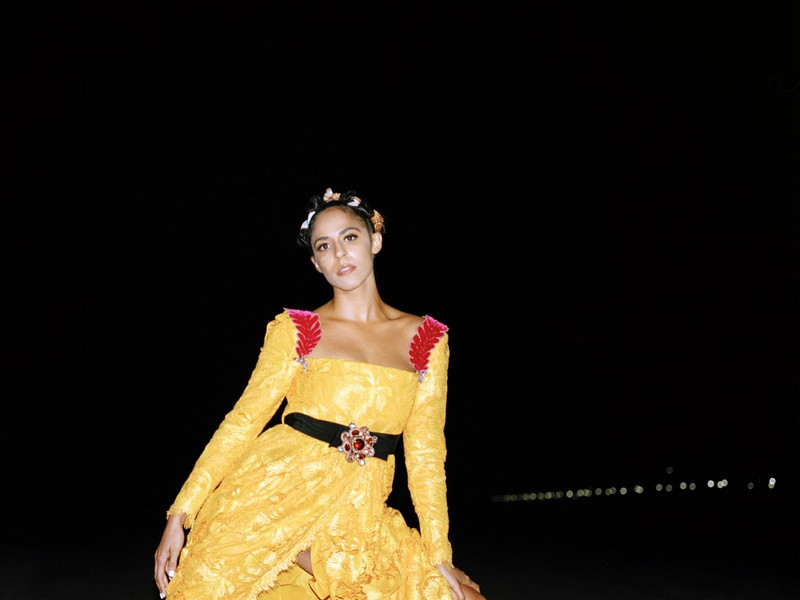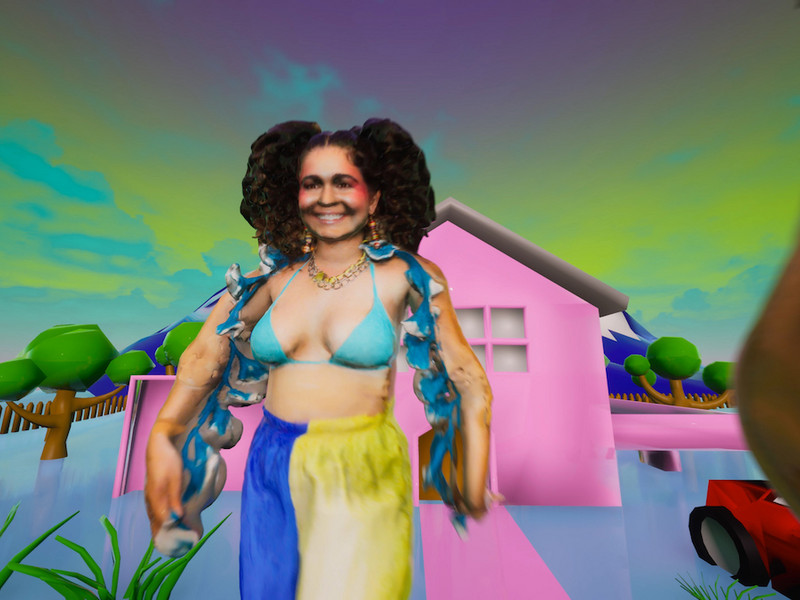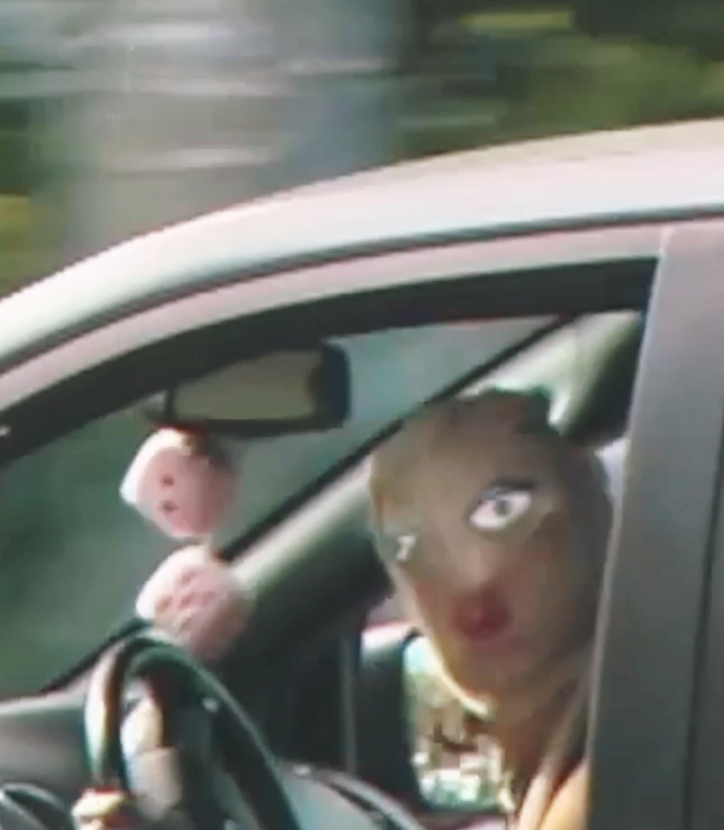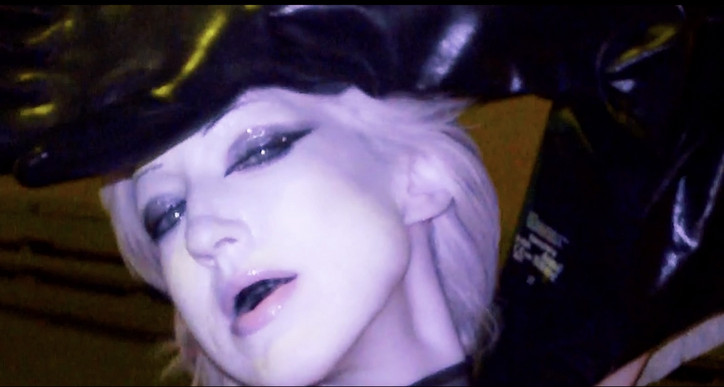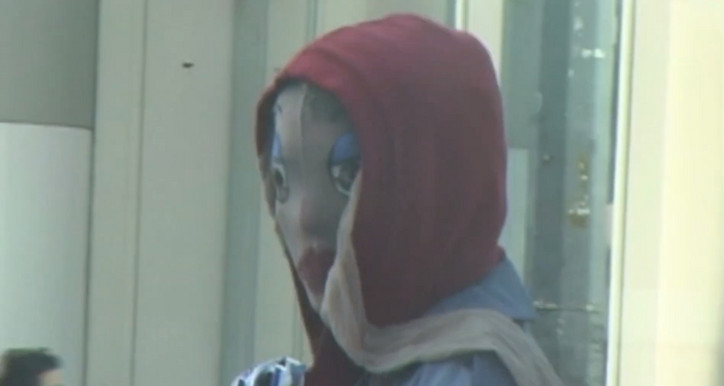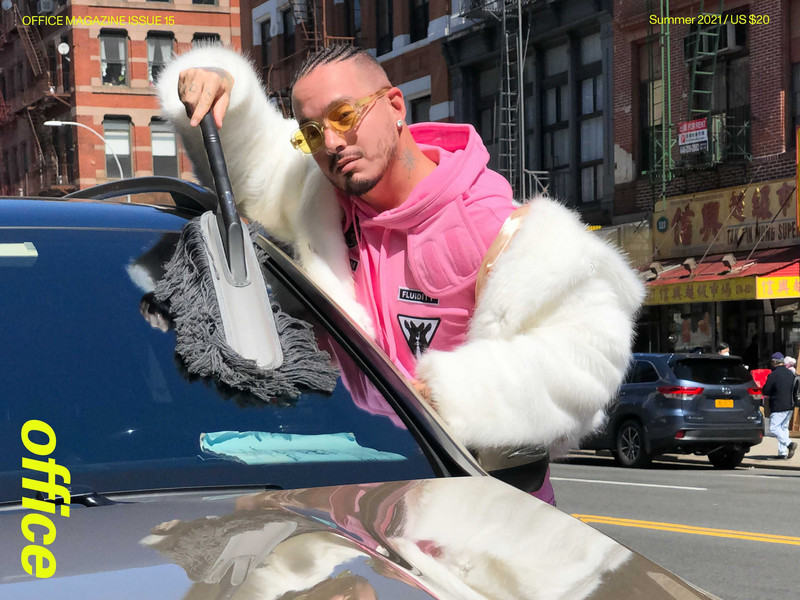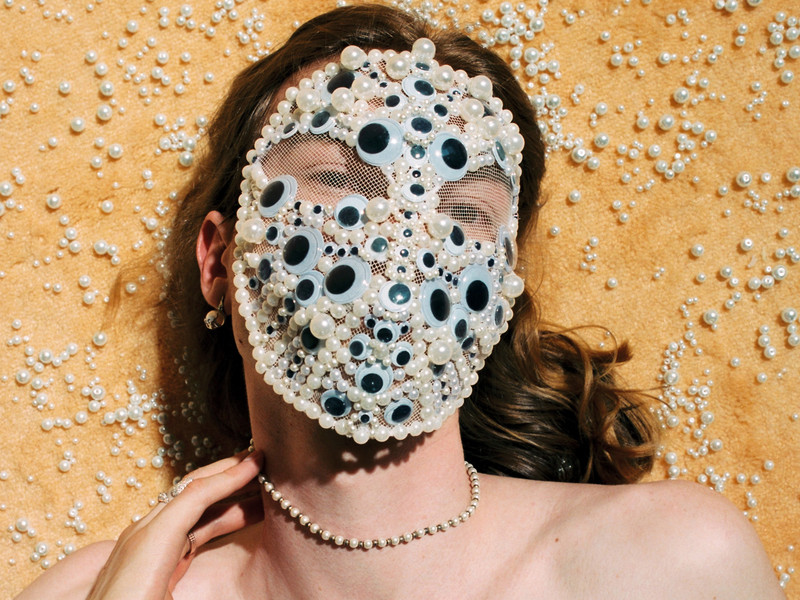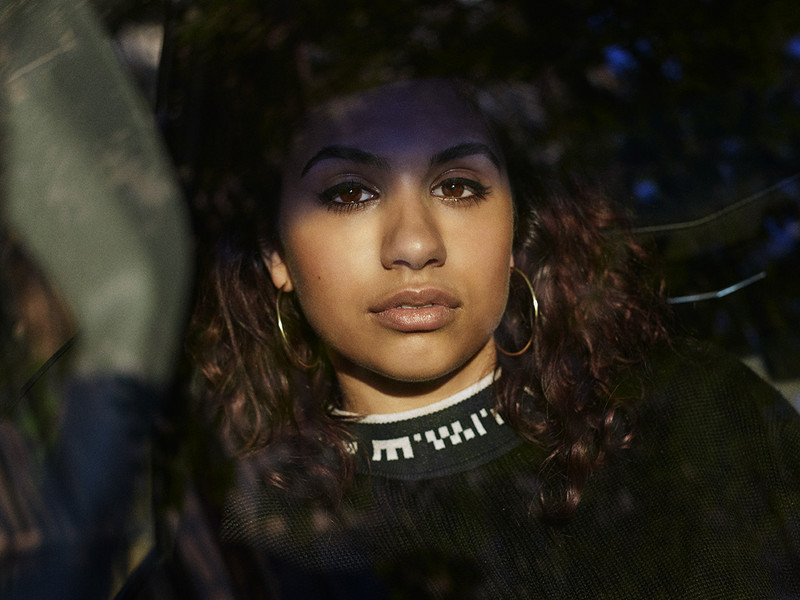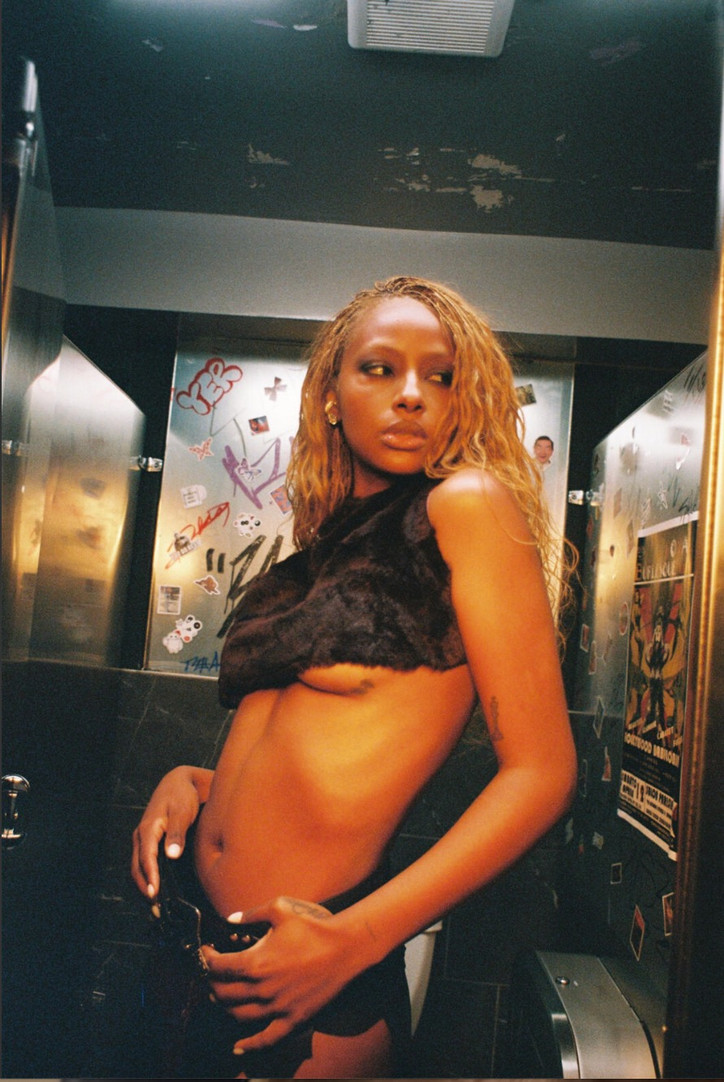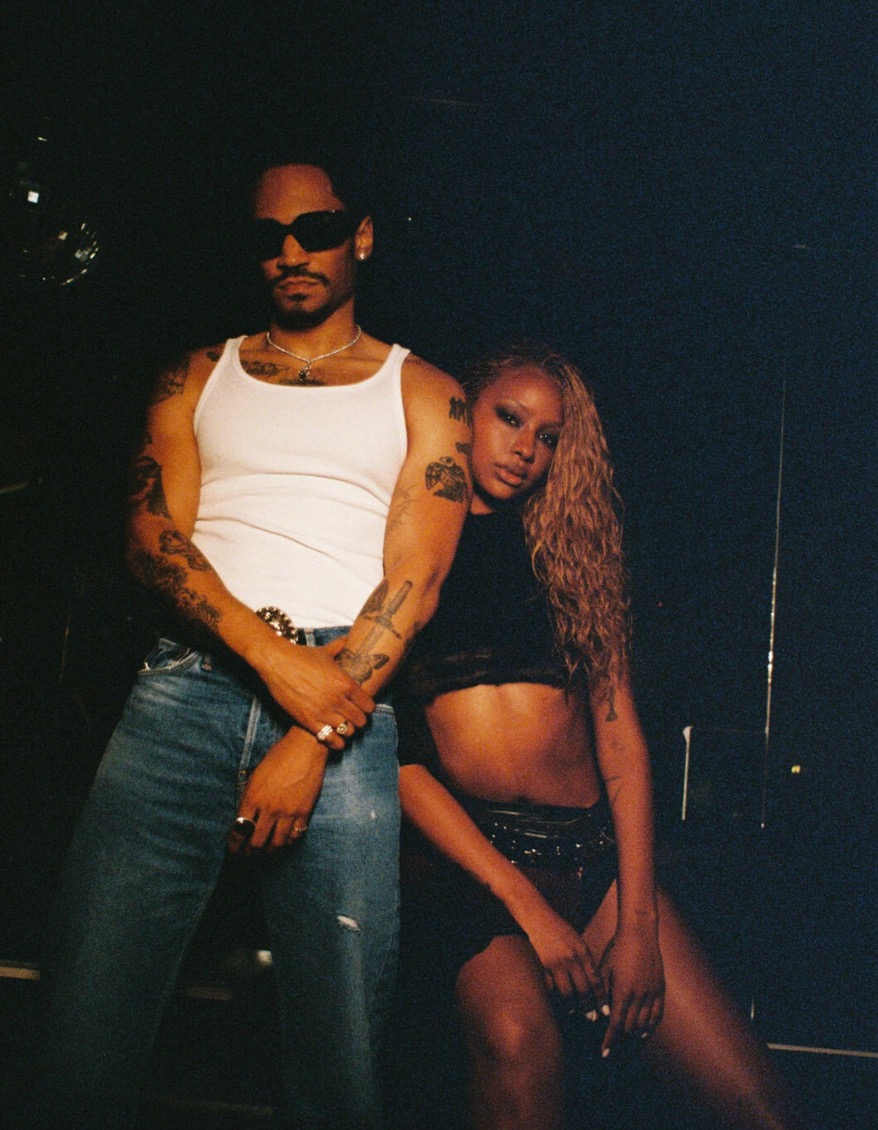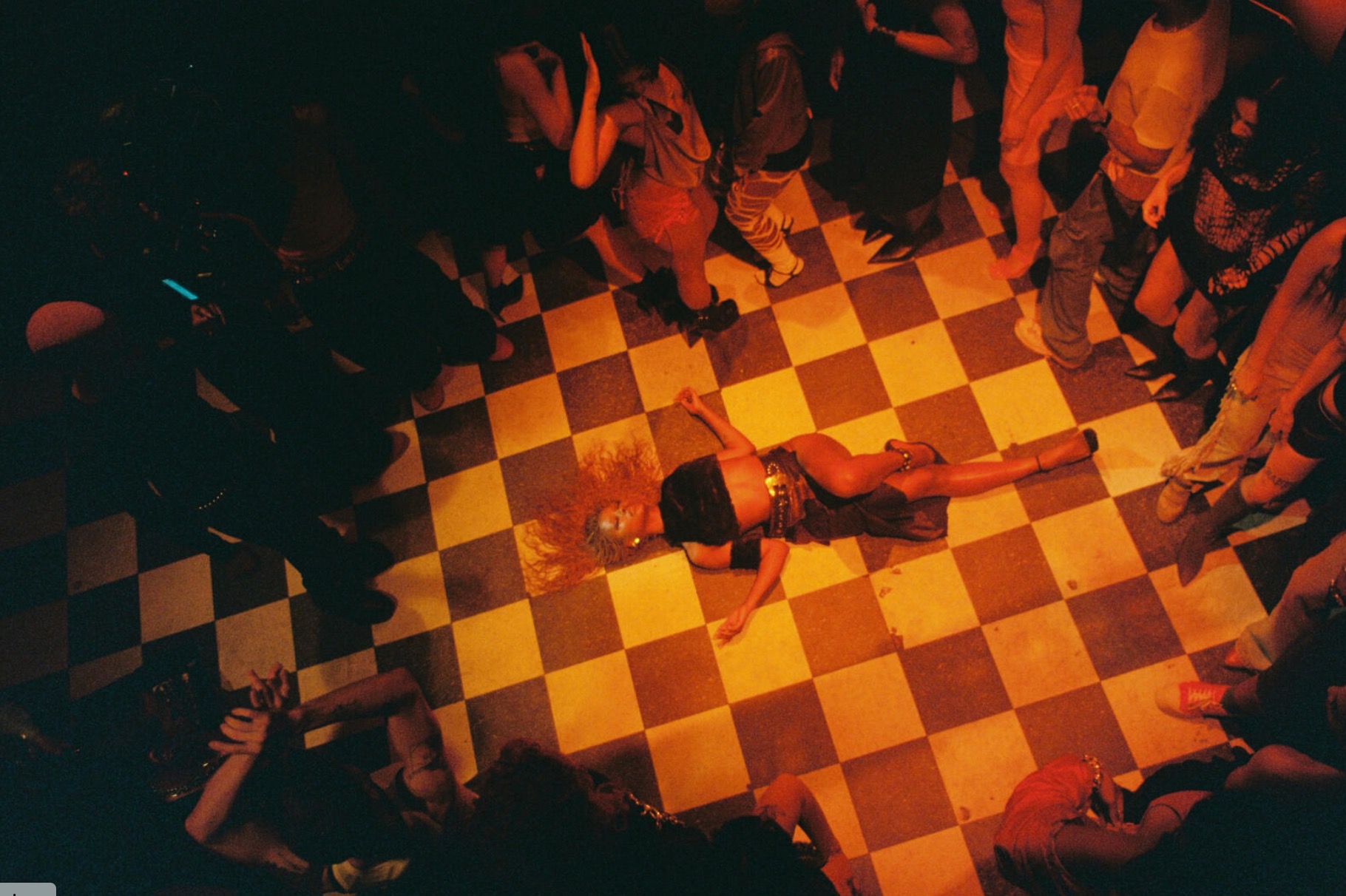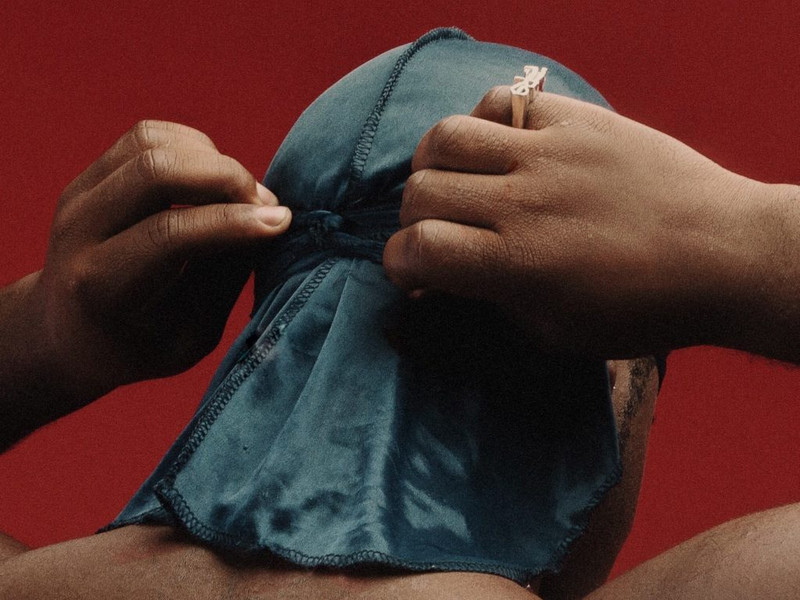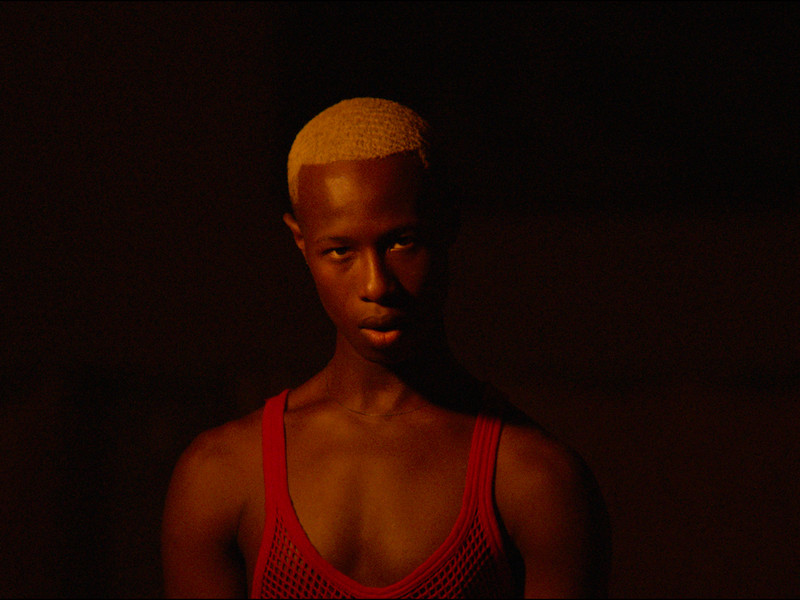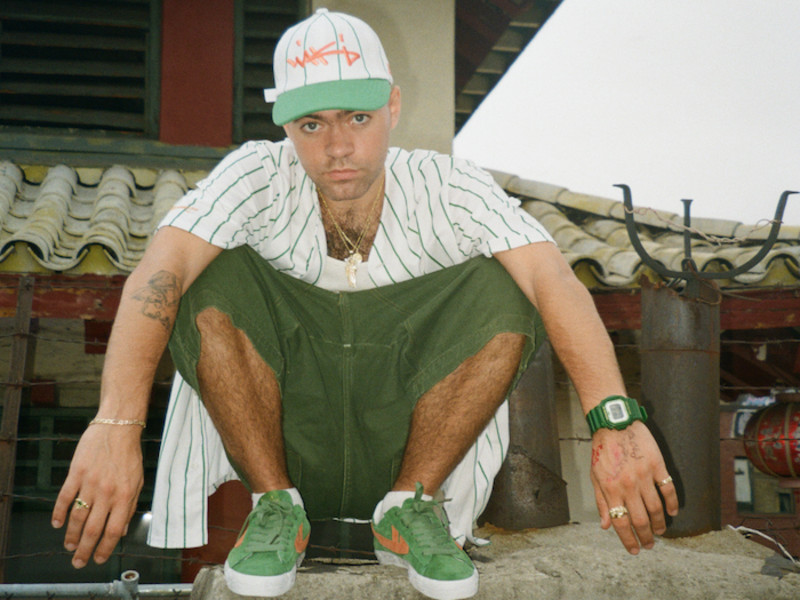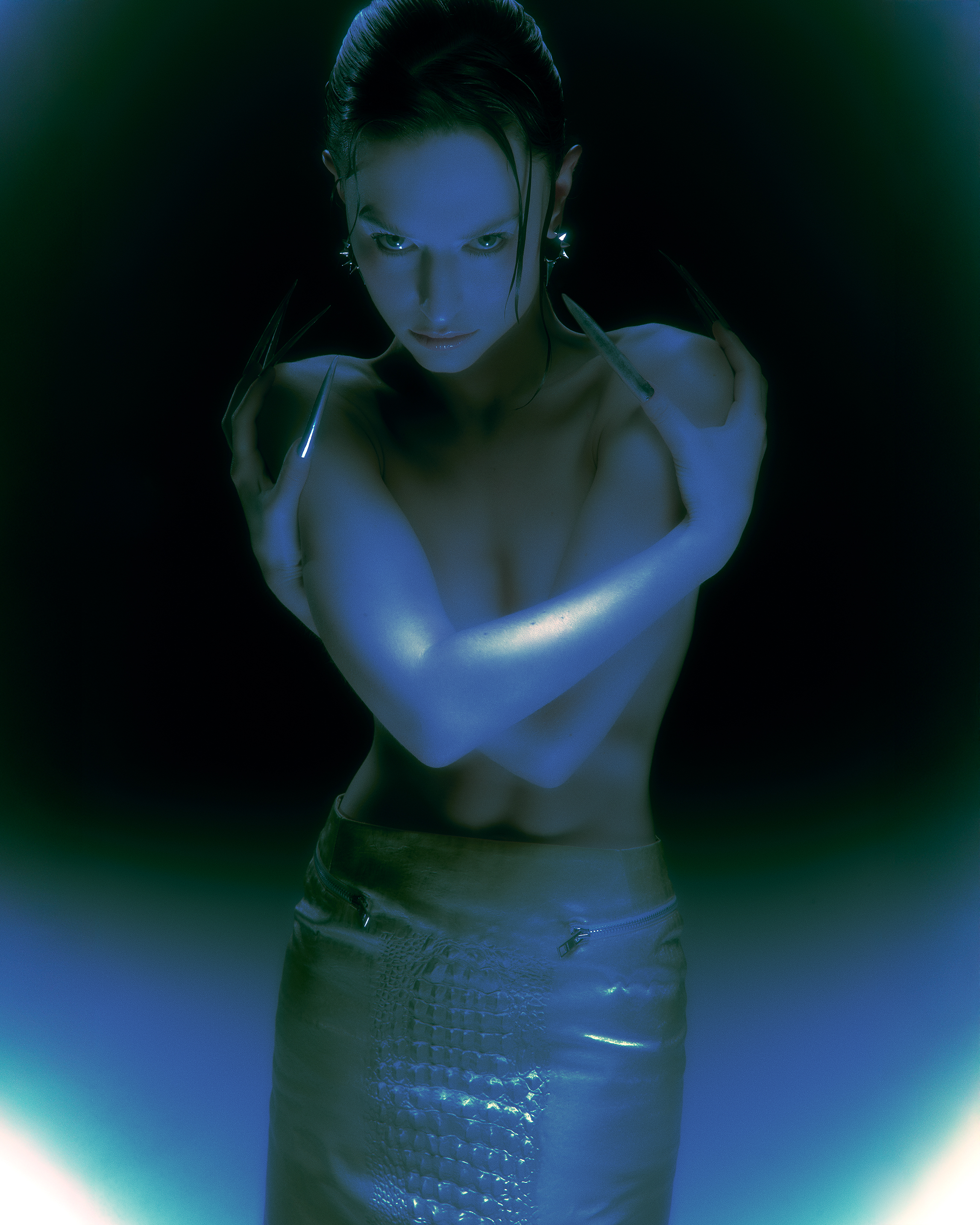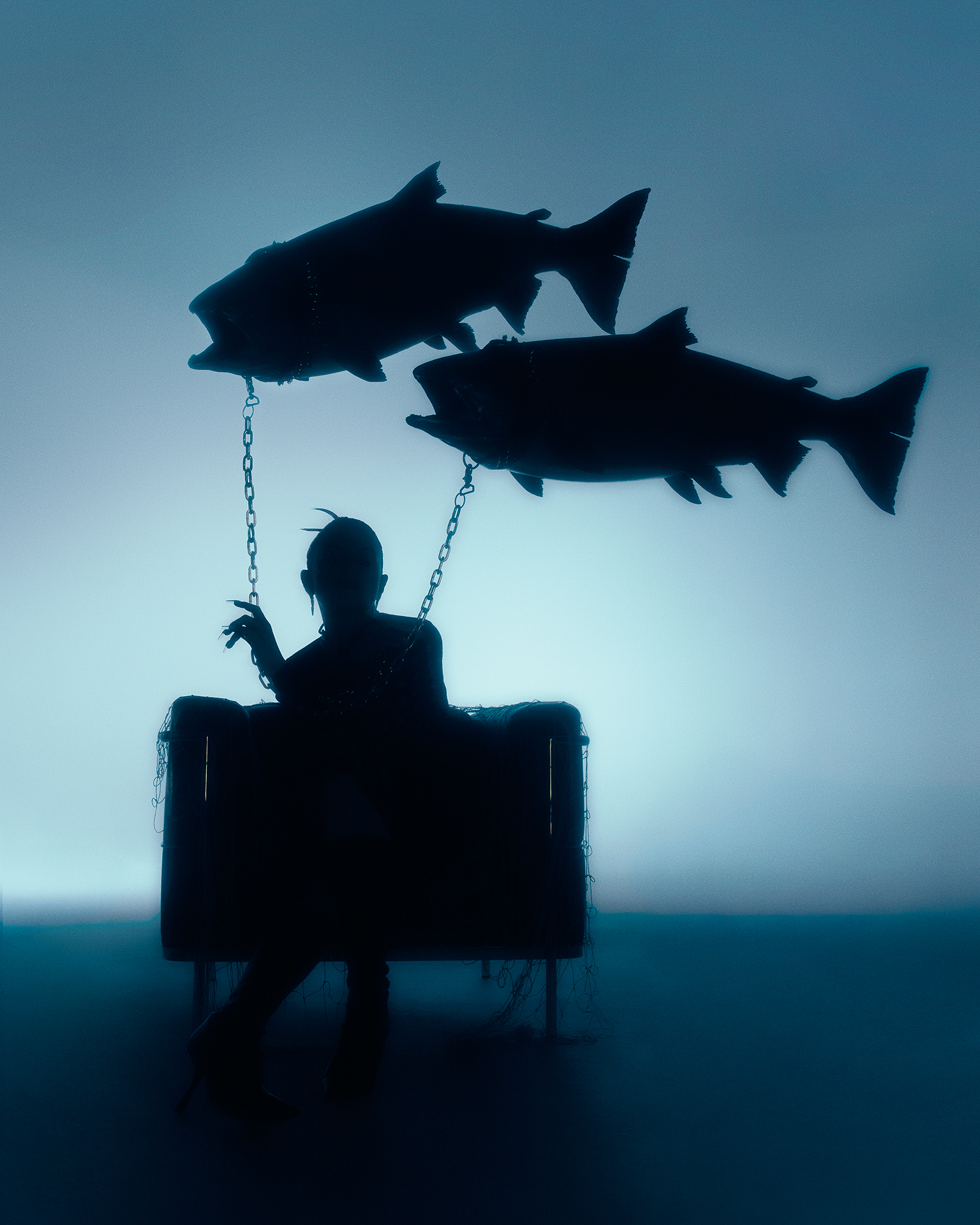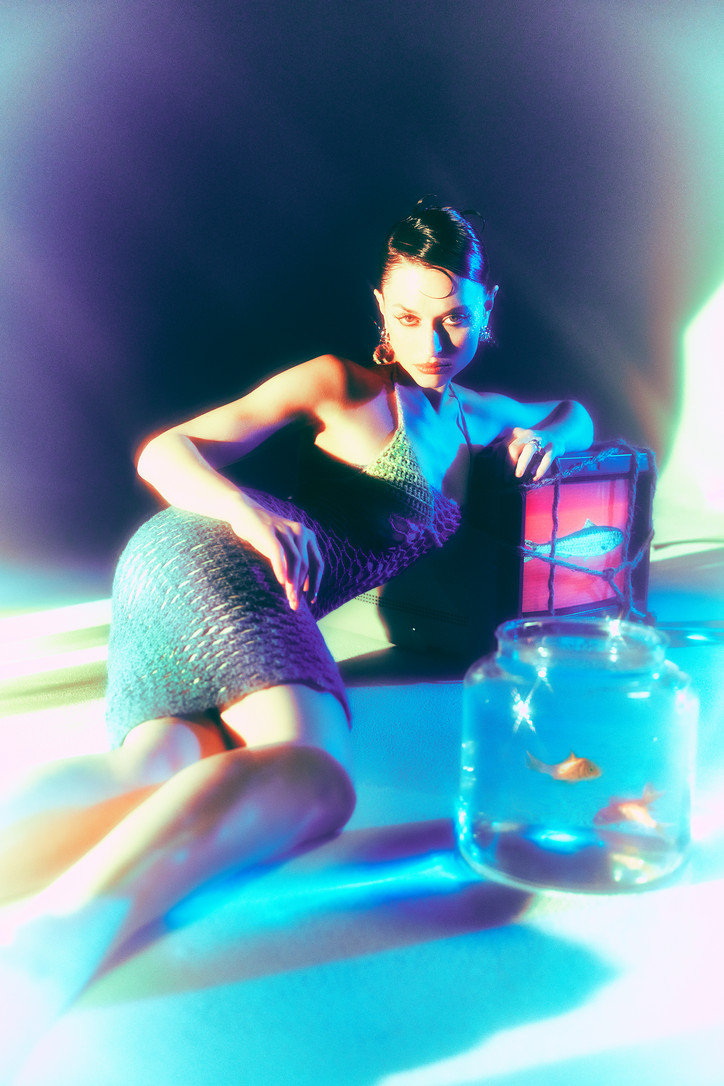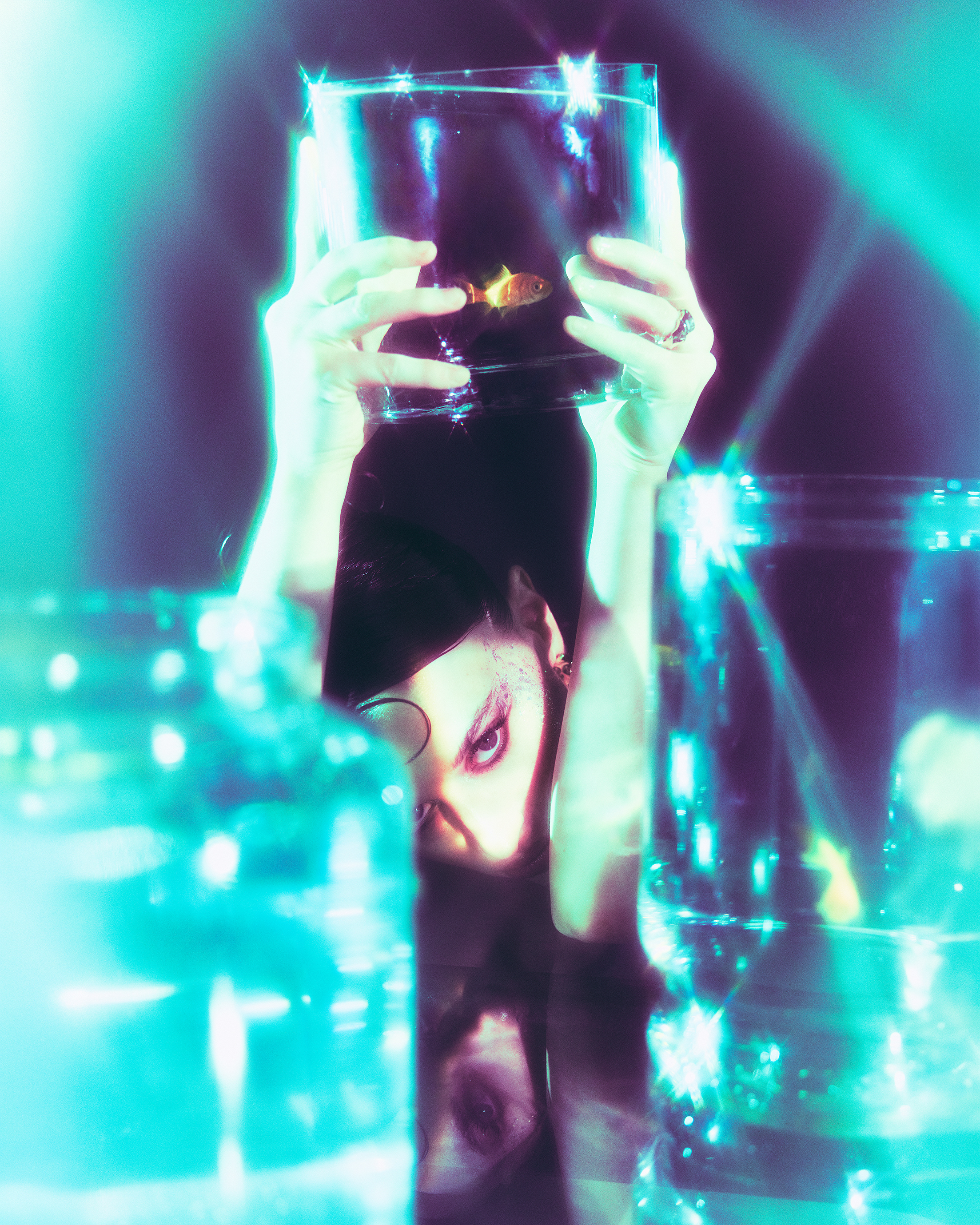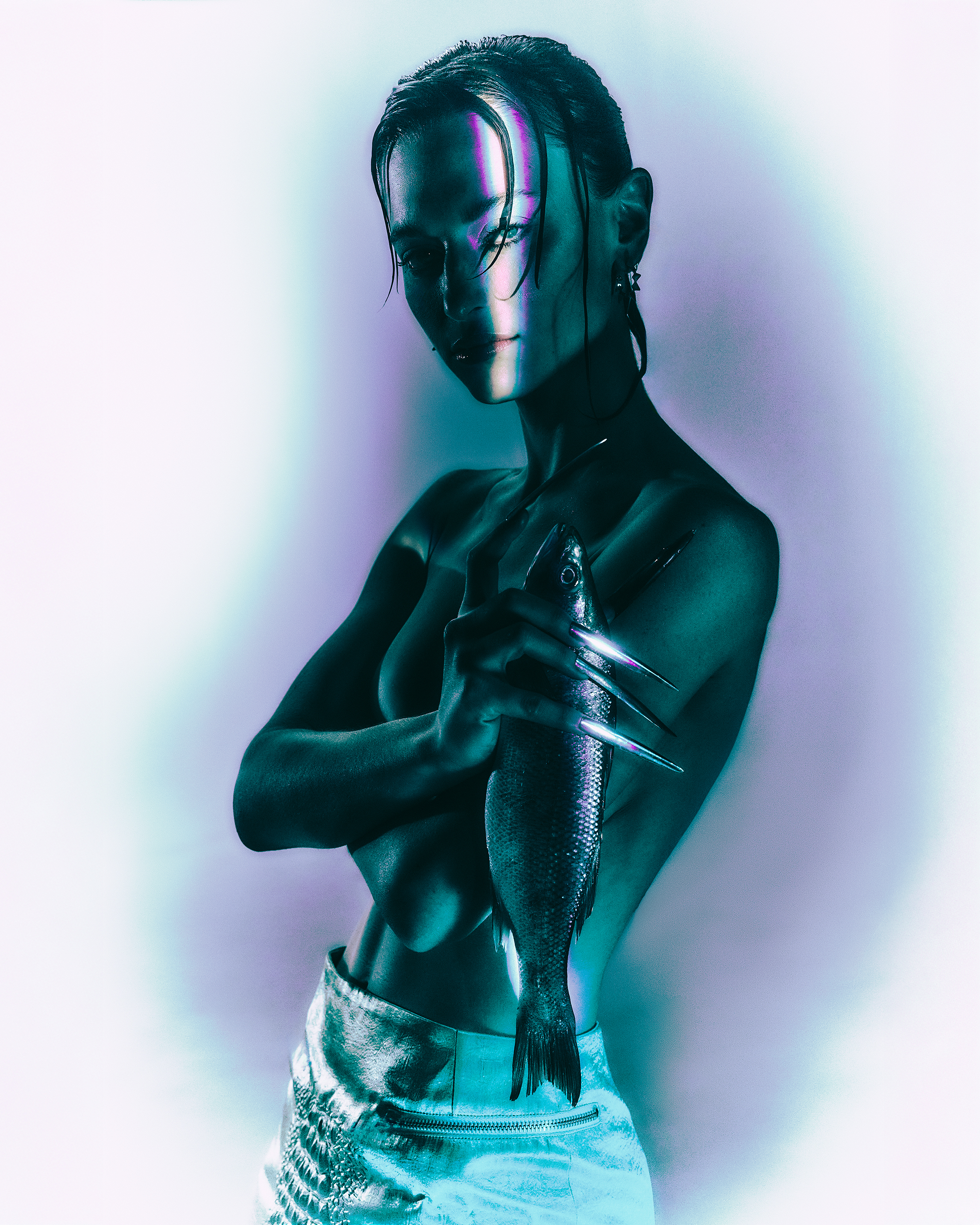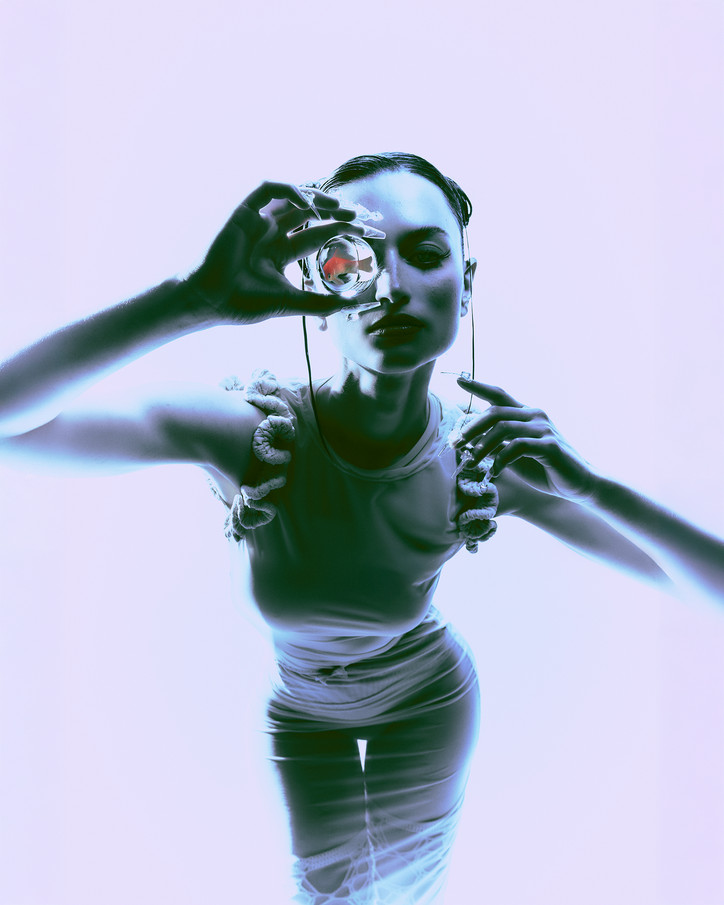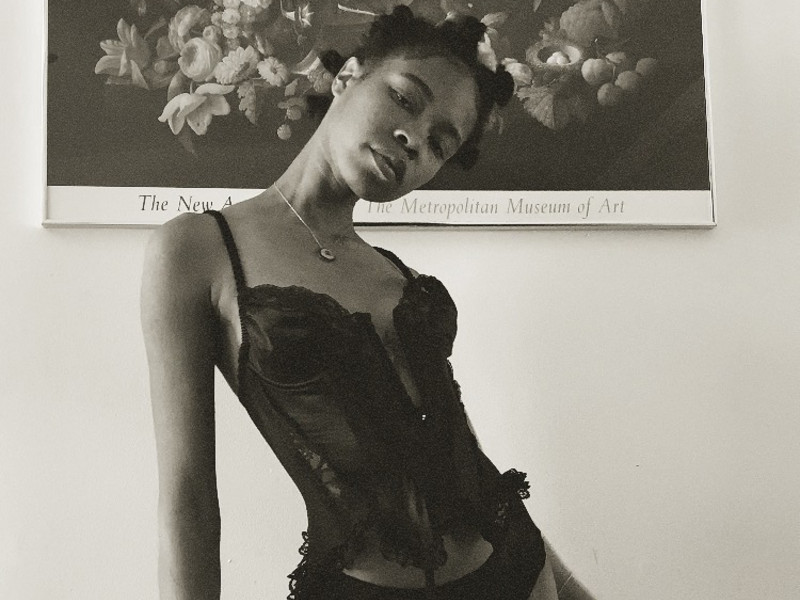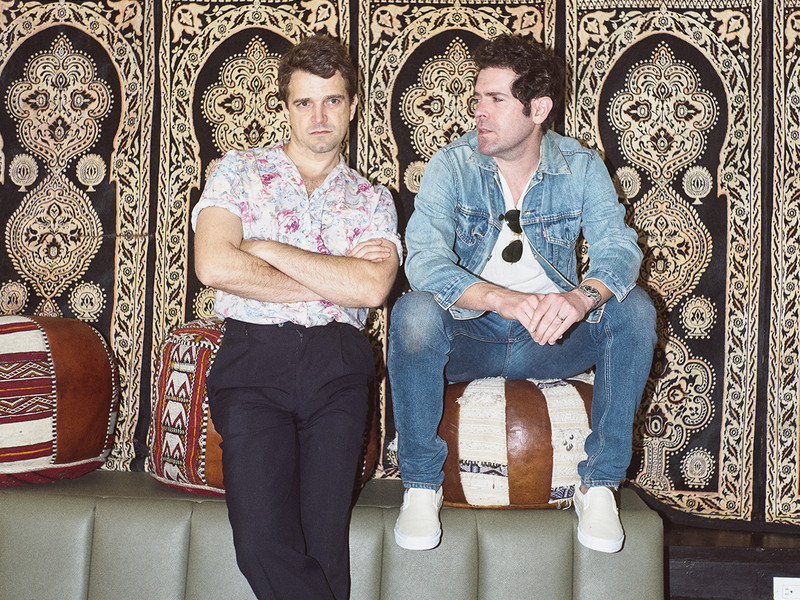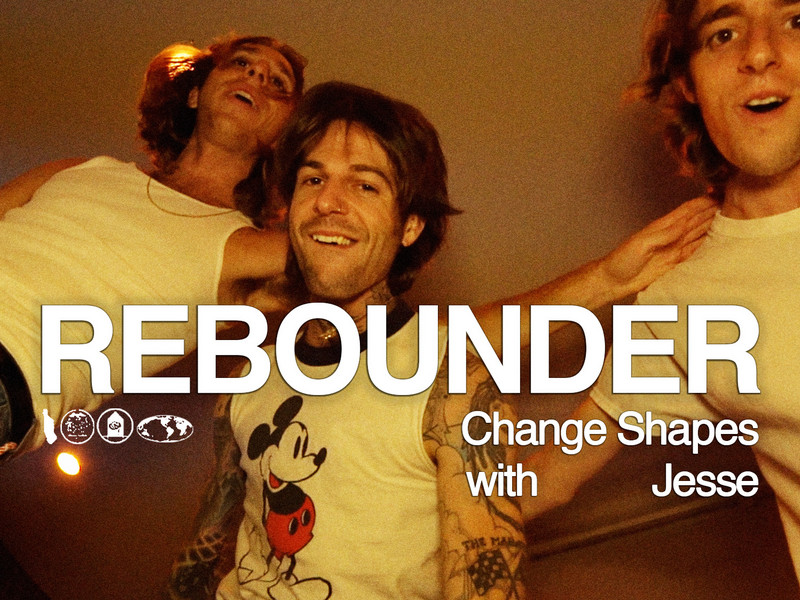Ric Wilson, They Call Me Disco
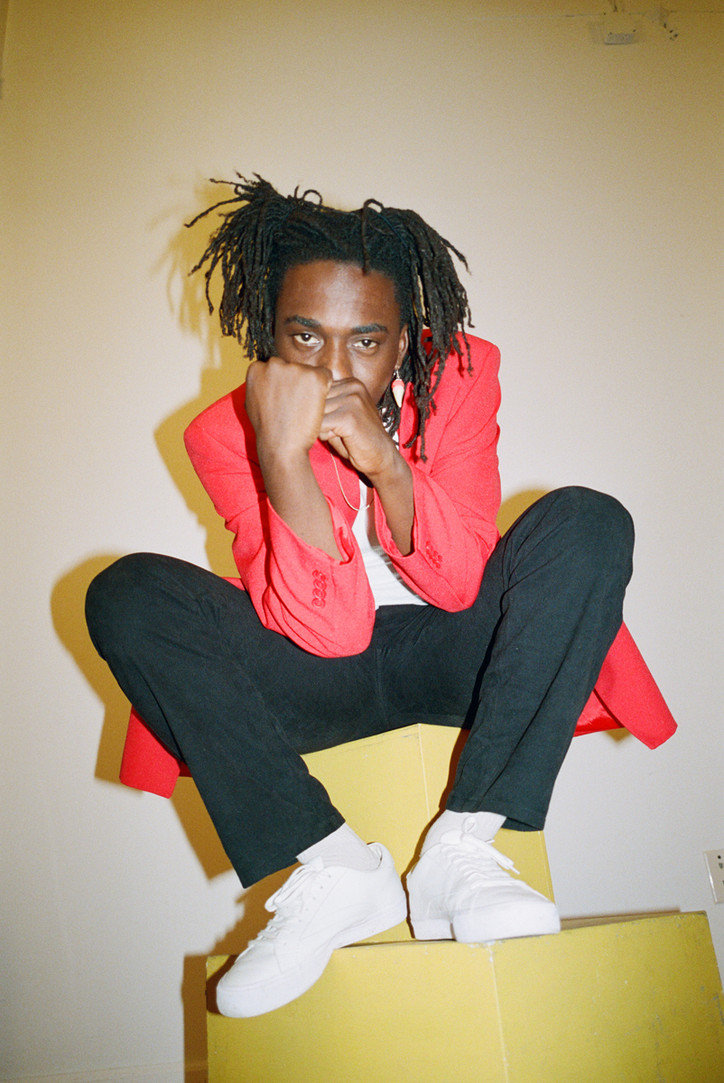
Check out the interview and They Call Me Disco below.
Congratulations on your new EP.
Thanks. It's kind of a curveball—thought it was going to be an album, but then we decided to do this instead first. But I think it was a good choice.
Why the EP instead of the album?
So it was an opportunity, you know what I mean? Like me and Terrace met, and my partners, managers and team were like, "Oh, we should just put the EP out before we put the album out." Me and Terrace got really in the mode of making it. And I ended up having all these new tracks for the album, and now it's a way better album. I think I was talking to you on my first tour with Corey, which is crazy 'cause it was not even a year ago. And as I was touring, I kinda decided that some of the songs that I have on the EP aren't songs that I want to perform forever.
So, I wanted to make an album of songs that I feel like I want to perform for the next five to seven years and that means something to me and build the album from there. It's more cohesive, you know what I mean? So that's that. I mean, I think creatively I matured since then, so that's good.
Yeah, listening to They Call Me Disco, it sounds to me like you have, too. I loved it.
Hell yeah.
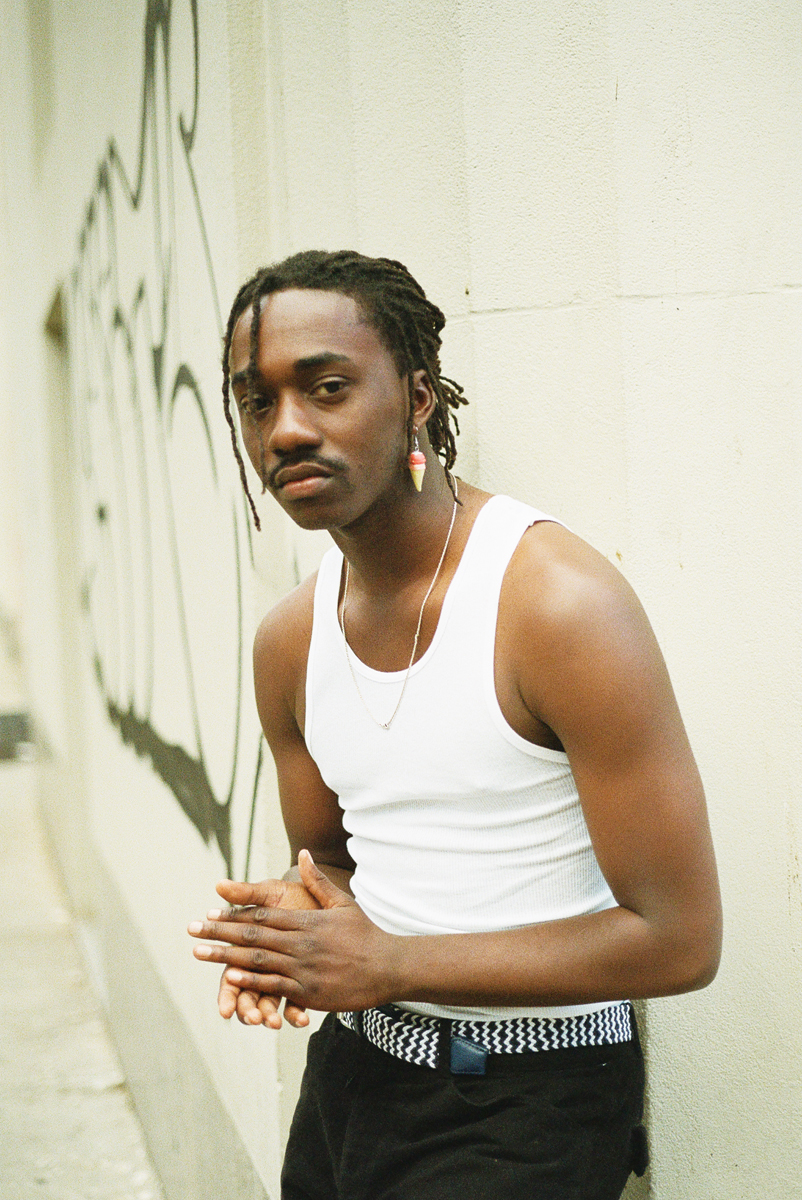
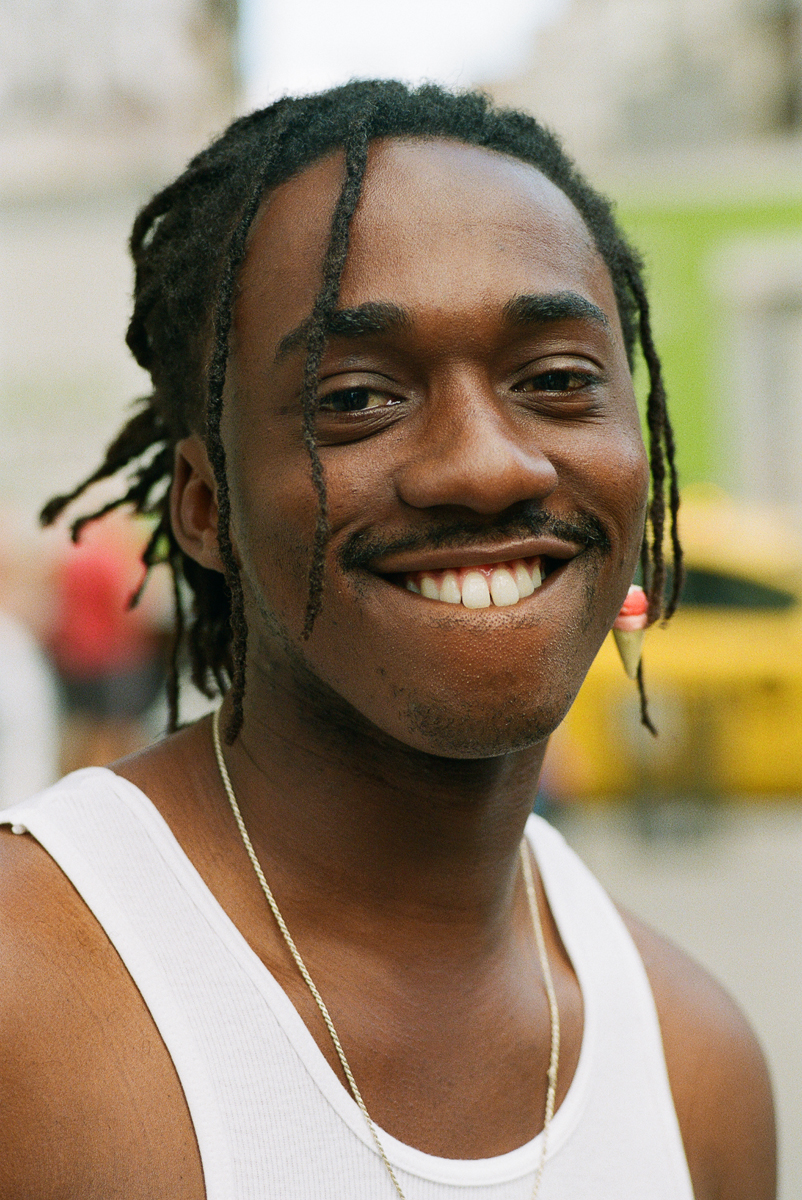
So how's your quarantine been?
It's all good. At first, it was real stressful, 'cause they were like, "Yo, your tour's canceled." And we'd sold out a lot of dates, so we were like, "Damn."
Are you in Chicago?
Yeah, I'm about to be driving in a minute. I'm taking my little brother to work. But yeah, at first it was kinda like, "What the hell?" But now, I'm just getting used to—I feel like I'm in one big ass Black Mirror episode, you know? And me and my phone are now becoming singular, and it all happened right when I had decided that I wanted to be on my phone less.
I know you've spoken about it before, but can you talk a little bit about how you came upon the title for the EP, They Call Me Disco?
Oh yeah. I was on my first tour, and I got lucky as hell. I was in the van with the band, and me and my DJ Lucas, we're always trying to find a ruckus and find where the parties were. And we were touring with these guys who had been doing it for like over a decade or even more. So, they were kind of over the partying after the shows, but after awhile, everyone started calling me Disco, 'cause I was always trying to find a party. And it also stems back to people calling me Disco Ric on the internet for a minute, because I did that mash-up that went viral with the Migos song over "September," and I put it to the Soul Train video.
So it kind of just stuck, and that's where the name comes from. It's not necessarily that these songs are all disco songs. It's hip hop music, just disco and funk inspired. So I feel like it went perfect, and everyone just started calling me Disco Ric.
Do you ever introduce yourself as Disco Ric?
Nah, hell nah. If I meet you, I'll probably say my name's Richie. I'm not going around like, "Hey, I'm Disco Ric." [Laughs]
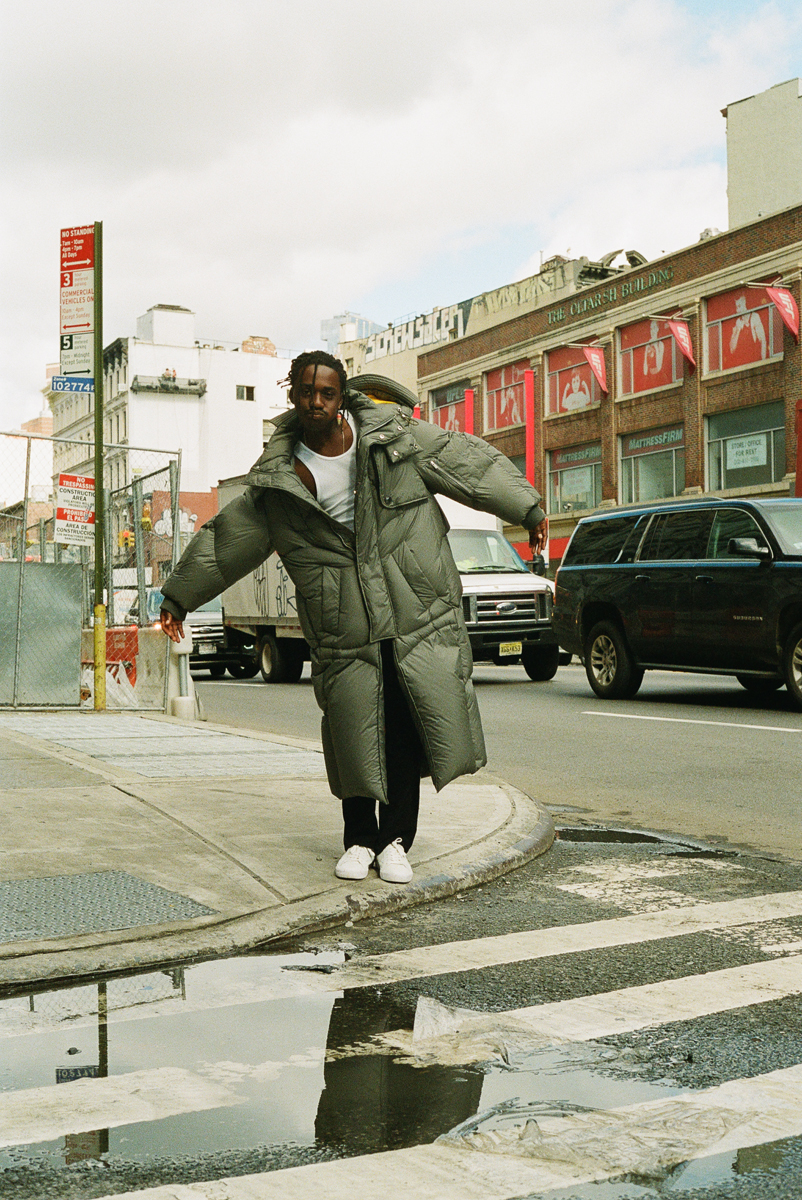
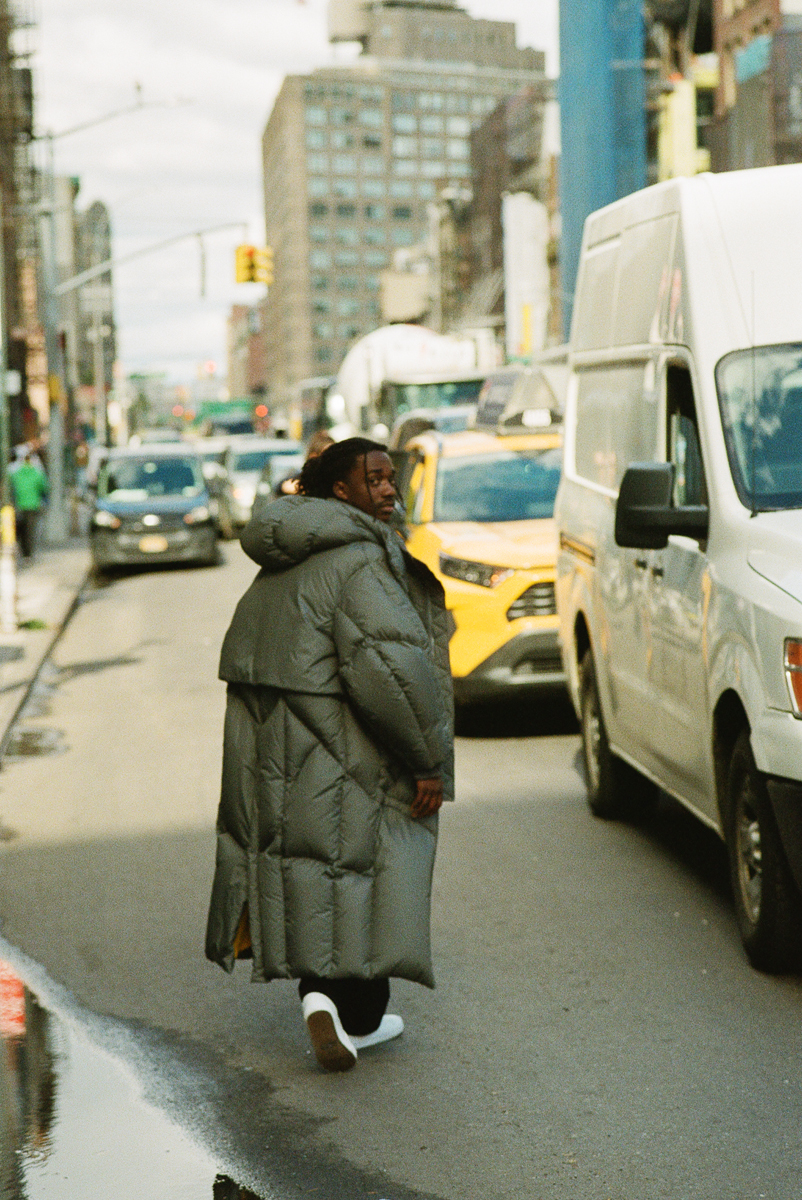
Did you write all the songs on the EP?
Yeah, I wrote all the songs. The only thing I didn't write lyrics for was the hook for "Chicago Bae." BJ The Chicago Kid actually wrote that hook, and he wrote that with producer Ted Chung, who produced it not too long ago and is also part of my management team, which is pretty cool.
So, going back to what you're saying earlier, you worked really closely with Terrace Martin. How was it working together?
Yeah, it's a straight up collaborative effort. He produced it, and then I just did the raps and came up with the lyrics and shit.
It kinda just happened like, I was a fan of his music, and we had a mutual friend: Russell Redeaux. Russell was like, "Man, you and Terrace would be dope." And at the time, I was just like this—I still am—this new ass artist, and usually, we don't just jump ship to immediately start working with someone like that. But Terrace and Russell had a connection, and Terrace wanted to get into making house music. So, initially we met, and we was just talking about like music and shit—we're both music nerds, and we started talking about house music which started here in Chicago. And then we started making music. Terrace had some beats, and one of the beat he had already created was "Don't Kill The Wave." And then me and him made "Move Like This" from scratch.
Okay, so you and Terrace have stated in previous interviews that this record is a reminder that disco never stops. What does disco in particular mean and represent to you?
Disco, to me, is an aura, you know what I mean? I think disco is very, very unapologetic. It's unapologetic art that is formed and created at the root by marginalized people. It was created by queer people of color, people of color, and folks who were kind of just pushed off and forced to find their own happy euphoria. And so when I think about that, and I think about what I want my music to embody, I want my music to represent and be a part of that culture. So when Terrace says that "disco never stops," I think he's talking about marginalized people and people of color finding their own euphoria and joy in places after being outcasted from a society that runs on money, capitalism and racism. Through that, we can still find our joy.
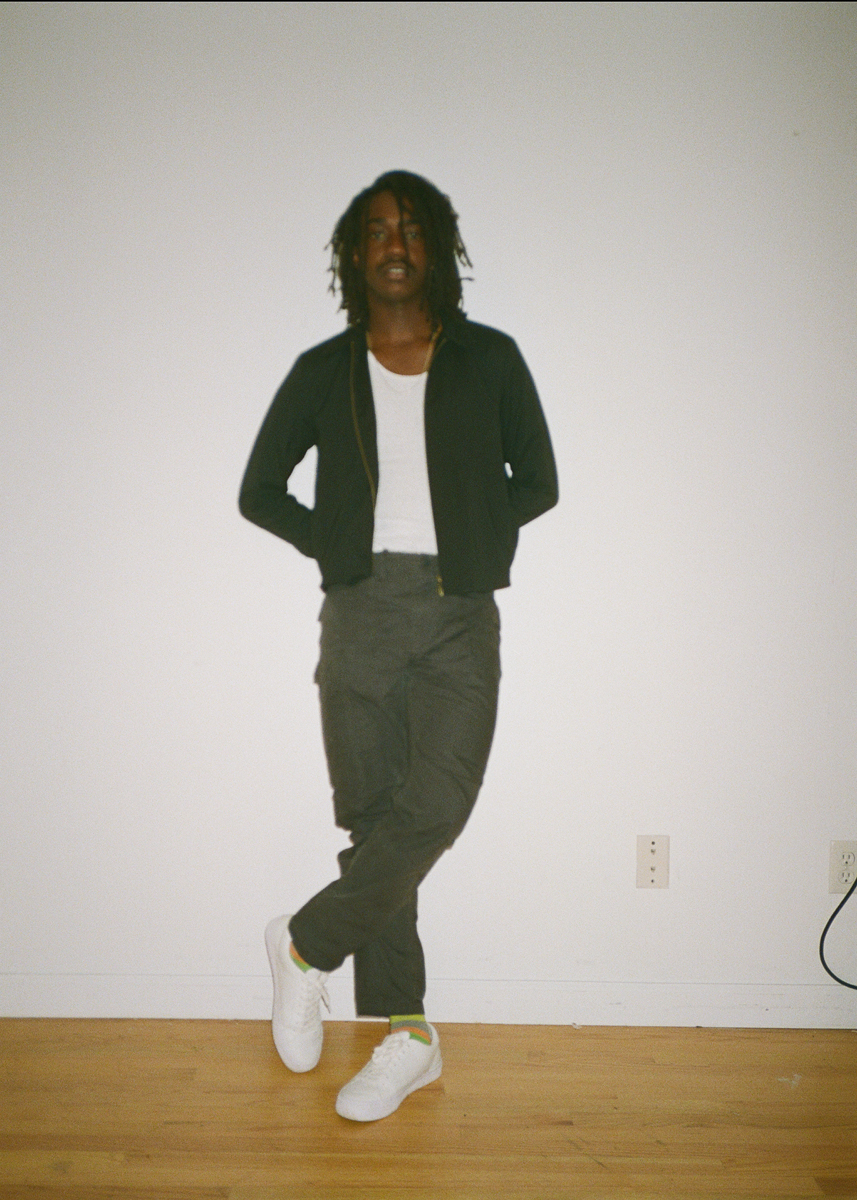

There's features with smaller and up-and-coming artists on the EP. How did you kind of go about deciding who you wanted to collab with for this?
Well, that's the thing. With SoundCloud, I realized that people are seeing that listeners really go for people who have big followers on SoundCloud, and there was just this emergence of newer artists. Everyone was only working with people on SoundCloud that had big followers. So, I was like, "Fuck it, I'm just going to keep working with my friends." So everyone that's included on there are just friends of mine, you know what I mean? It's all organic shit.
So you've also been an outspoken activist for various causes. You are a prison abolitionist, and you were one of eight delegates selected to head to Switzerland in 2014 to represent We Charge Genocide. Do you plan on using your platform to continue your activism?
Yeah. Duh. I mean, yeah obviously. Well, not duh to you, just duh in general. Before, I was an organizer. I was a hardcore; I dropped out of college, and I became an organizer. And then it's crazy, because right when I decided I wanted to organize, that's when it was really necessary and getting a lot of spotlight, because Mike Brown had just been killed. And I was part of We Charge Genocide and BYP. From there, I started doing music more, and now I'm just more of a mouthpiece. I wouldn't say I'm an organizer—I'm just a mouthpiece for the movement through my music. There's people that are actually organizing every day.
Yesterday, we did a virtual benefit concert for groups that were either ran by people of color or ran by marginalized folks that are on the forefront of working and helping people through this pandemic. That was dope and really successful; we raised like $70,000 dollars. So like stuff like that. That's what I'm trying to do. As things keep growing, I'm going to figure out how I can creatively keep helping people. I don't know exactly how that is or what that looks like yet, but like I'm going to try to keep helping people that look like me. The only reason I got here is 'cause I had a community of people that look like me.
I saw that you performed a little part of the EP on Fox 32, the news channel in Chicago. So what was that like?
They hit me up to talk about the benefit concert and the EP, so that was really cool. I think it's great when people see people that remind them of themselves on TV. Usually, when you see people on TV like when they're like Chance the Rapper, there's a disconnect. I know when I was younger, it inspired me to see people where I was like, "Dang, he's like a stone's throw away, and he's on TV." You know what I mean? I think TV still matters to people, so that's cool. It's not the end at all, you're still working.
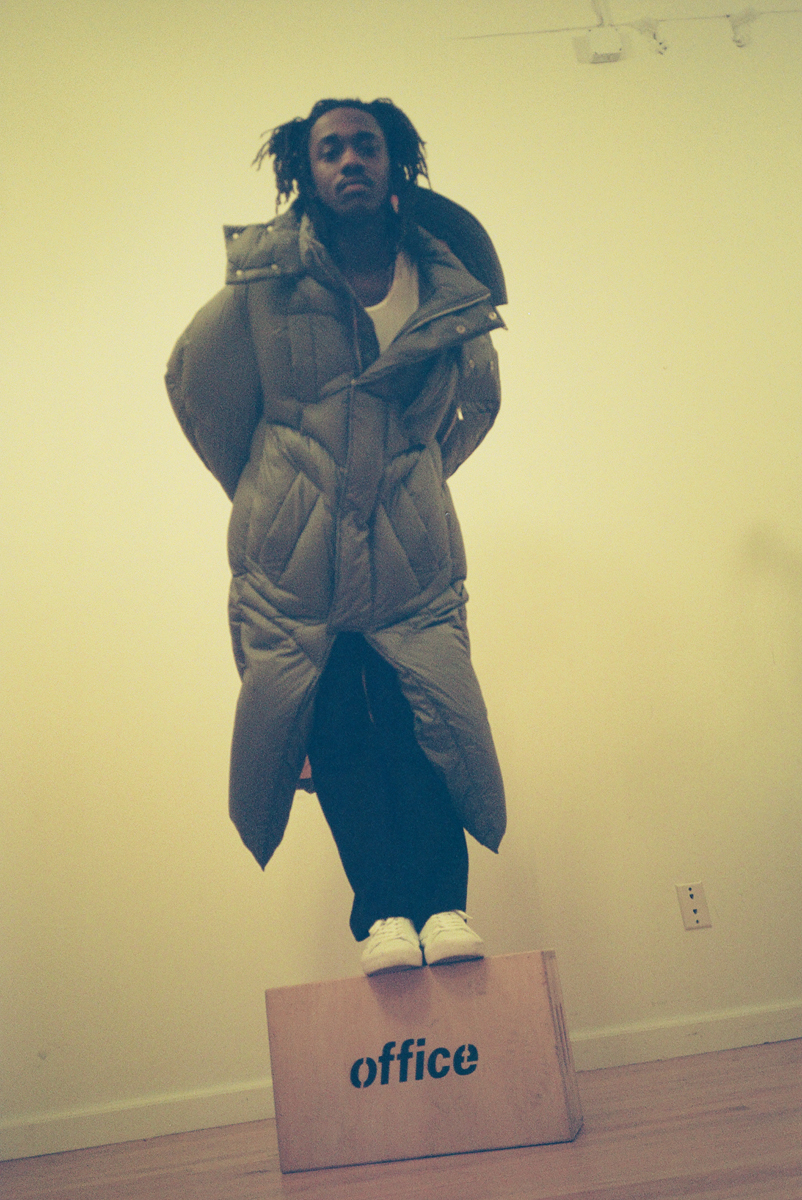
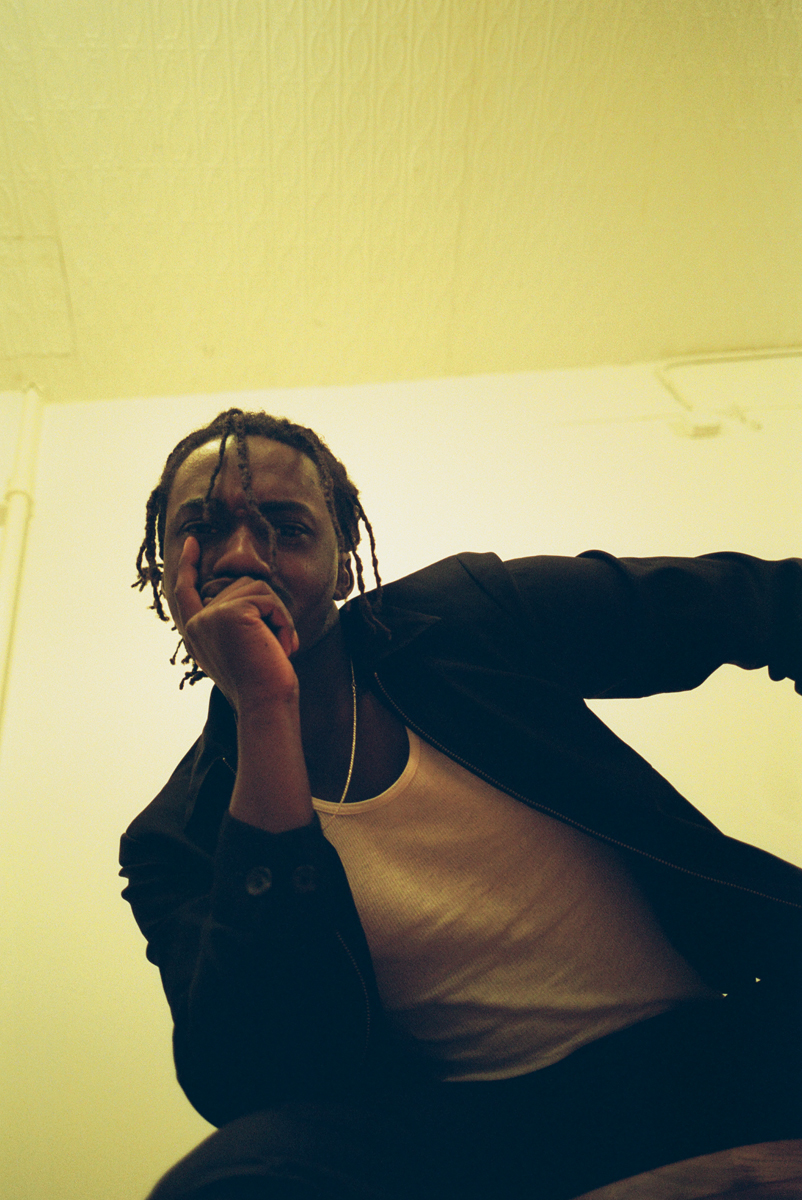
I know you love to two-step, so if you could only choose one song to two-step to for the rest of your life, what song would it be?
One song for the rest of my life? It's this song called "Follow Me" by Aly-Us. It's a Chicago house classic hit. If I could only two-step to one song, it's that song. And like if you look up the song, and you don't know which one it goes like, [Sings] "Follow me, follow me, follow me." That's all; it's literally one vocal, and I don't know how the fuck he made this a classic song. He seems to have a one vocal, no backing vocals. He sings it. It must be because back in the day, it was like tape recordings. It wouldn't be like digital. So it sounds like he said fuck you and recorded the whole thing in a one-hour session. That'd be the song.
If your sound was an alcoholic drink, it would be a:
An 1800 Tequila with coconut and pineapple juice. So, like a tequila colada.
What else do you have in the works for 2020? Your album?
Not the same album you heard, but we're dropping the album this year.
